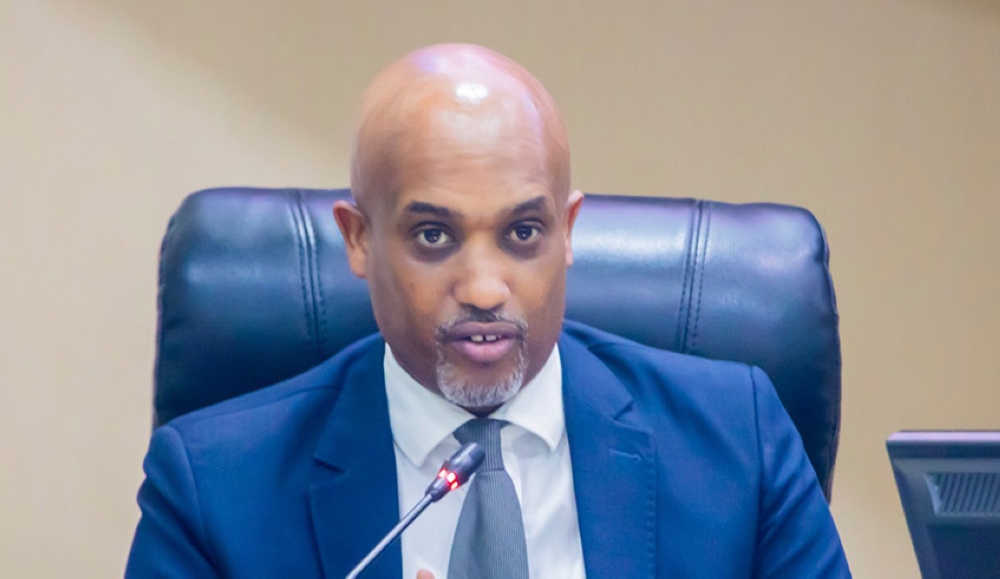

Rwandan Senators have asked the government to solicit support from the African Union (AU) in pushing for the extradition of suspected perpetrators of the 1994 Genocide against the Tutsi who are still on the run on the continent.
Speaking to the Senate Committee on Foreign Affairs, Cooperation and Security, on Friday, March 1, Minister of Justice Emmanuel Ugirashebuja, said African governments lack the political will to extradite or put Genocide suspects on trial in their jurisdictions.
ALSO READ: 29 years after Genocide, over 1,000 suspects still at large
ALSO READ: Rwanda renews call for Australia to extradite two Genocide fugitives
Since 1994, the Rwandan government has sent out 1,149 indictments and arrest warrants for suspects. Only 59 have been tried abroad or extradited to Rwanda.
Of 1,090 pending indictments, 962 suspects are believed to be living in African countries. The majority of them (408) live in DR Congo and Uganda (278). There are 63 suspects in Malawi, 52 in Tanzania, 42 in Congo-Brazzaville, 35 in Kenya, and 16 in Burundi. At least 53 suspects are believed to be living in 10 other African countries, including South Africa, Zimbabwe and Cameroon.
ALSO READ: Where are the 1,100 Genocide fugitives?
Senator Emmanuel Havugimana said the AU needs to use the political resources at its disposal to push African governments to prosecute or extradite the Genocide suspects to Rwanda.
"It is very shocking to hear that the person who killed your relatives lives in a neighbouring country,” Havigamana said.
"If you look at the number of [Genocide suspects] who are in DR Congo, those in Uganda, Burundi and Tanzania, you wonder what you need to do for these countries to have the political will to prosecute these criminals if they cannot extradite them. This is a matter the African Union needs to consider and encourage governments to recognise that the Genocide against the Tutsi is such a barbaric crime that its perpetrators must be punished to prevent similar atrocities in on the continent.”
ALSO READ: Tanzanian diplomat appeals for arrest, trial of genocide fugitives
Currently Rwanda has signed extradition treaties with 13 countries, most of which are on the African continent.
"The lack of the political will remains a major challenge with regard to the extradition and prosecution of Genocide fugitives,” Minister Ugirashebuja said, adding that the sad reality was that certain governments prioritised their political interests over justice.
"We support the idea that like other international organisations to which Rwanda is a member, the African Union should play a significant role in encouraging countries to prosecute or extradite suspected perpetrators of the Genocide against the Tutsi who are still at large,” said Ugirashebuja.
ALSO READ: Countries sheltering Genocide fugitives are silent accomplices
The Minister said Rwanda was among 32 countries that signed up to a multilateral extradition treaty in February.
He said he hoped that more countries would be willing to facilitate the extradition of Genocide suspects under the agreement known as the Ljubljana-Hague Convention on International Cooperation in Investigation and Prosecution of the Crime of Genocide, Crimes against Humanity, War Crimes, and other International Crimes.
Rwanda is also a signatory to other multilateral extradition treaties such as the London Scheme and the Harare Scheme. However, Ugirashebuja said countries need not have an extradition treaty with Rwanda to send Genocide suspects. Canada and the United States, for example, have deported Rwandans suspected of Genocide.
ALSO READ: How Genocide fugitive Kayishema changed identity to elude capture
The Senators pledged to tap into their networks to urge foreign parliaments to facilitate the extradition of Genocide suspects still on the run.
"We have noted that certain countries are still reluctant to extradite or prosecute suspected Genocide perpetrators who live within their territories,” said Senator Hadija Murangwa, the Chairperson of the Committee on Foreign Affairs, Cooperation and Security.
"This is an issue of concern. Going forward, as Rwandan parliamentarians, we want to use parliamentary diplomacy to explain the severity of this matter to our counterparts in other countries. Once they have understood the problem, they will appreciate the role they need to play and ratify conventions and treaties their government signed and then more of the criminals will get caught,” she said.


